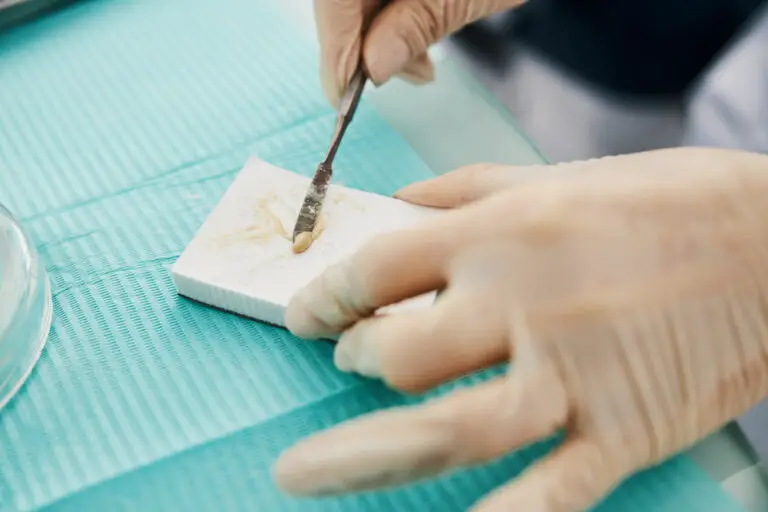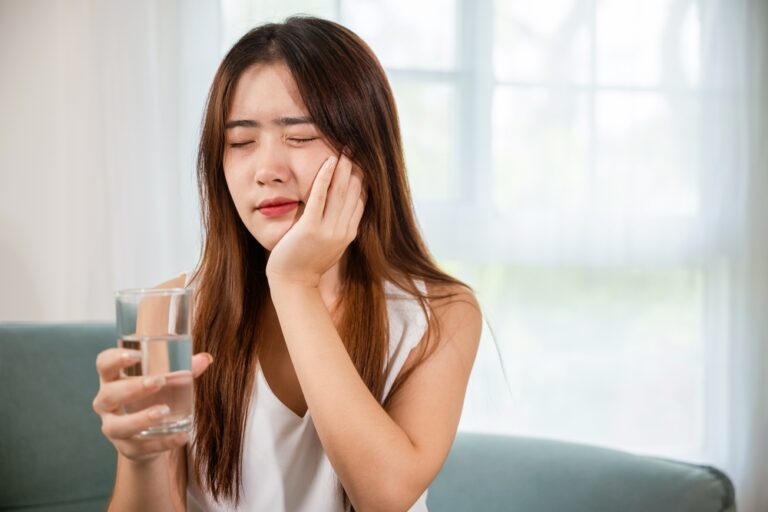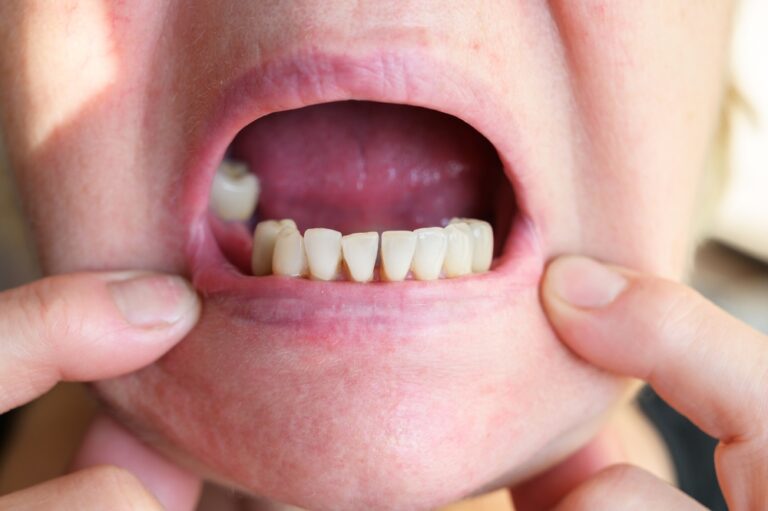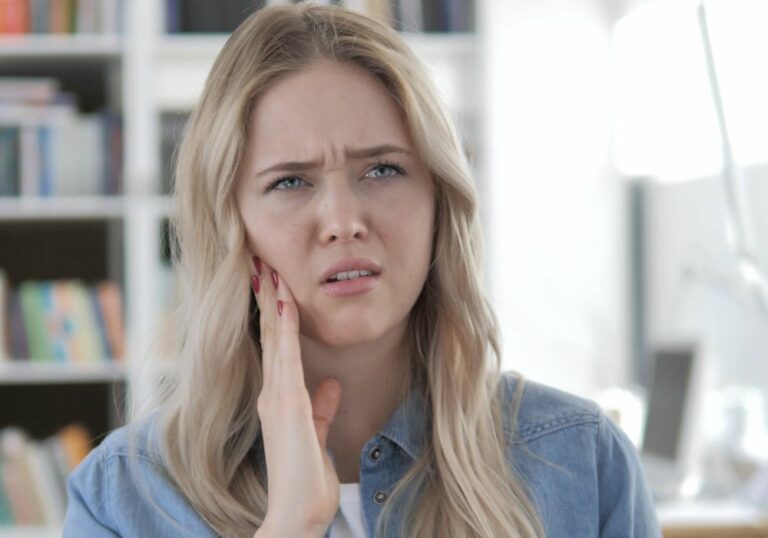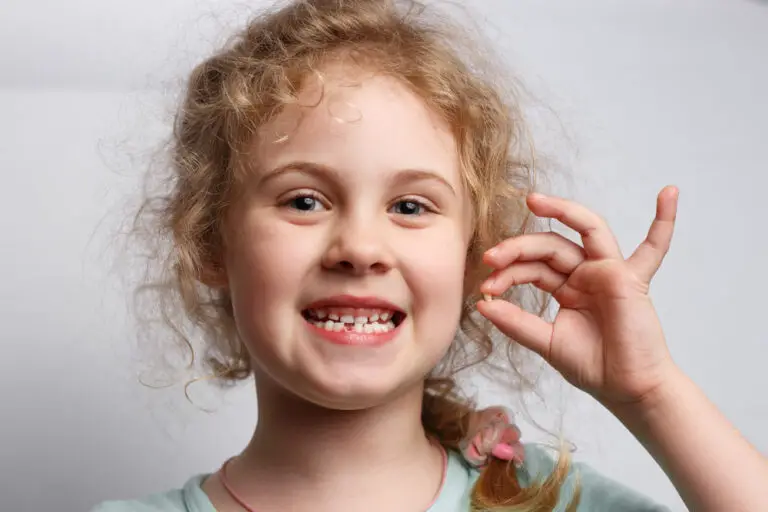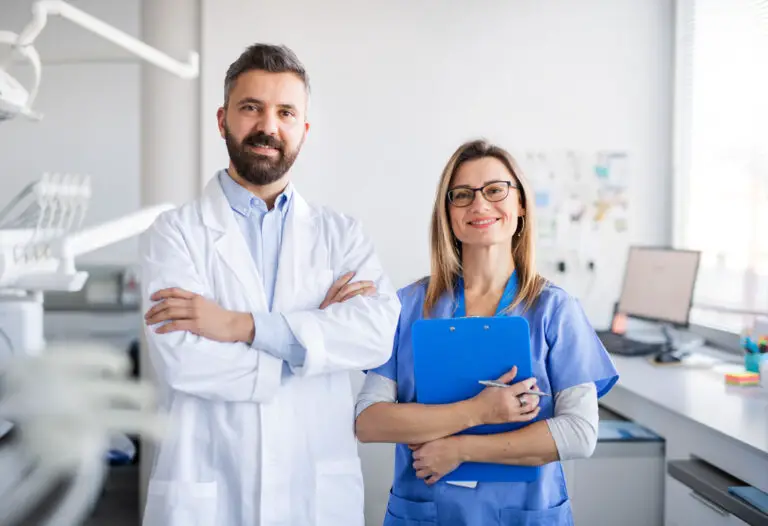Teeth cleaning is an important part of oral health and keeping our smiles white and bright. If you are about to have your teeth cleaned for the first time, you might have many questions about the procedure such as how soon after dental cleaning can you eat and what you can eat.
In this article, we cover not only how long you have to wait until dental cleaning before you eat but also what you can eat and what you should avoid. You will also find information on what happens during dental cleaning and why it is recommended you have your teeth cleaned by a dentist twice a year.
What is Professional Teeth Cleaning?
While brushing and flossing we do at home will remove food residue and help fight the build-up of plaque and tartar, professional cleaning by a dentist will do a lot more. It is more thorough and will support the oral hygiene you practice at home. A teeth cleaning procedure at the dentist may include brushing, flossing, treating, scaling, and planing.
Teeth Brushing
As part of the cleaning procedure, your dentist or dental hygienist will brush your teeth with an electric toothbrush. While this may sound a bit basic, it will be a lot more thorough brushing than what we can do at home. In addition, they will use special toothpaste with abrasive components to clean your teeth and remove discoloring.
Flossing
Like the brushing done by your dentist, dental flossing will be different from how you do it at home, too. When a dentist flosses your teeth, they will get rid of food residues not just between your teeth but also in places that are hard to reach yourself. It will also clear away plaque.
Rinsing and Treating
The rinse will remove any debris left in your mouth. Once that is done, your dentist will treat your teeth with fluoride. It is a natural mineral that will strengthen your teeth. The fluoride treatment will also improve your teeth’s resistance to bacteria that can cause cavities in your teeth.
Teeth Scaling with Root Planing
If you have signs of gum disease, your dentist may recommend you have teeth scaling and root planing. Your dentist will discuss the process with you, which will involve multiple visits to remove tartar as well as plaque from your teeth and roots.
How Soon Is It Safe to Eat After Cleaning?
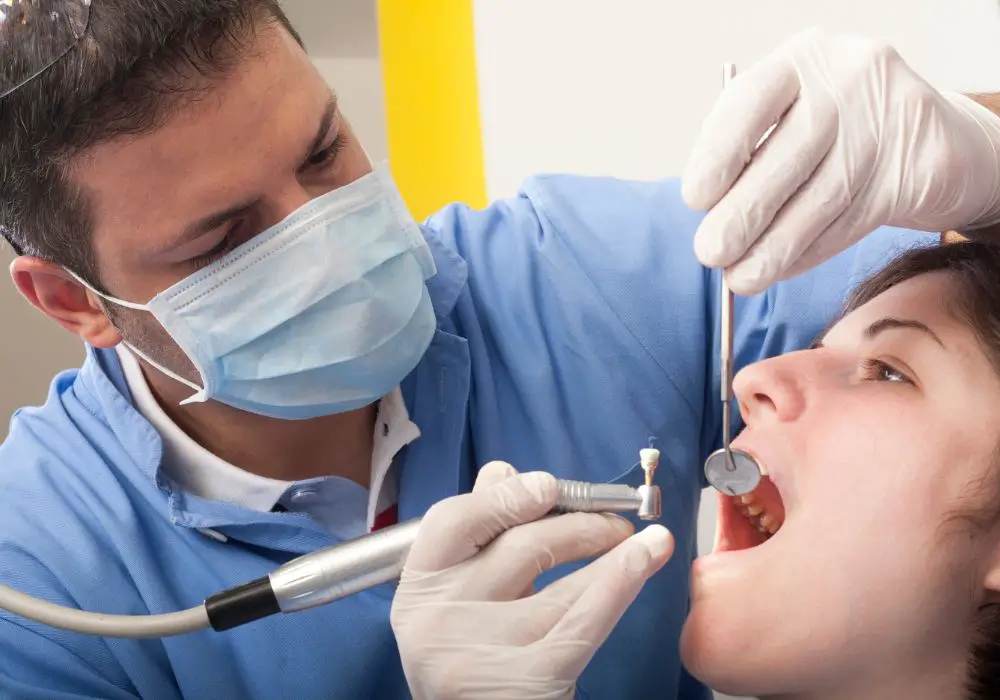
How long you need to abstain from eating depends on the type of dental cleaning you are getting done. If you have a fluoride treatment on your teeth, then you need to wait a minimum of thirty minutes before you eat or drink again. This will give the fluoride time to soak into the teeth fully.
If you haven’t had fluoride applied to your teeth, then you should be able to eat and drink straight away. However, check with your dentist to ensure you get the best benefit from the treatment.
Having a tooth scaling and root plaining treatment is again different. This process involves local anesthetics and the cleaning of not just your teeth but your roots, too. Speak to your dentist about how soon you can eat. Your dentist can recommend the best foods to eat but you will also find some suggestions on safe foods below.
What to Eat After You Have Had Your Teeth Cleaned
Eating the right foods, or more importantly, avoiding certain foods, will affect how successful your dental cleaning is and how long the benefits will last. After your teeth cleaning treatment, eating the right foods can help you maintain strong clean teeth.
The key to keeping your teeth clean is to avoid foods that will stain your teeth. This is especially important straight after the cleaning because the process will have made your teeth more permeable for around six hours.
Avoid Foods That Might Get Stuck in Your Teeth and Gums
Some foods, such as nuts, popcorn, and chips have a higher possibility of getting stuck in your gums. It is best to avoid these foods for at least six hours after dental cleaning as if they get stuck, it may cause you discomfort. Sticky and chewy foods like toffee or dried fruits can also stick to your teeth and gums.
Avoid Spicy and Acidic Foods
Because your teeth and gums are more sensitive after dental cleaning, avoid foods that are high in acid or very spicy because they will be too harsh on your gums. These foods include citrus fruits, tomatoes, pickles, fruit juices, and red wine.
Avoid Foods That Require a Lot of Chewing
It is also best to avoid foods such as hamburgers after your dentist has cleaned your teeth. These may be too large for your jaw if eaten straight after the cleaning treatment. They also require more chewing and biting which can stress your teeth and gums.
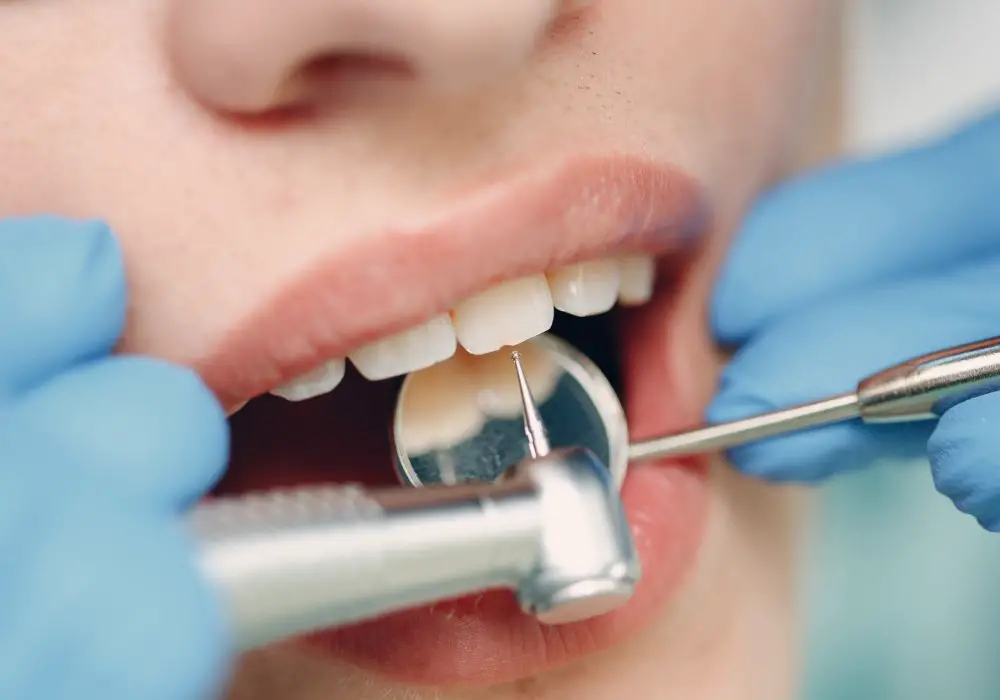
Choose Soft Foods
After a dental cleaning procedure, choose foods that are soft and easy to swallow. You can eat, for example, smoothies, yogurt, bananas, eggs, mashed potatoes, and pasta. Soups are a great choice, too but let them cool down a little before eating as hot foods can cause discomfort while your teeth are healing.
Do not skip meals even if your teeth are feeling sensitive because food and nutrients are important and can help your teeth heal faster. You also need to drink plenty of water to keep yourself hydrated.
What Diet is Best for Teeth?
In the long term, it is best to avoid starchy and sugary foods and drinks as they can cause tooth decay and acid erosion over time. You might also want to avoid foods and drinks that can stain your teeth, such as coffee if you want to keep them as stainless as possible.
A balanced diet that includes plenty of fruits, vegetables, whole grains, and lean proteins will help you maintain good dental health. You should also include foods rich in phosphorus and calcium in your diet. These foods include milk, yogurt, cheese, leafy greens, tofu, almonds, fish, meat, and poultry.
How Else Can You Ensure Good Oral Health?
When you have had your teeth cleaned, it is important to eat the right foods and have a good dental hygiene routine at home. As well as brushing your teeth, floss them as well every day. Make sure you change your toothbrush every three to four months.
Have regular dental cleaning at the dentist. Your dentist will be able to advise you how often you should have your teeth cleaned. The general recommendation is twice a year but every person is different and some people may need them cleaned more often.
Why Should You Have Your Teeth Cleaned by a Dentist?
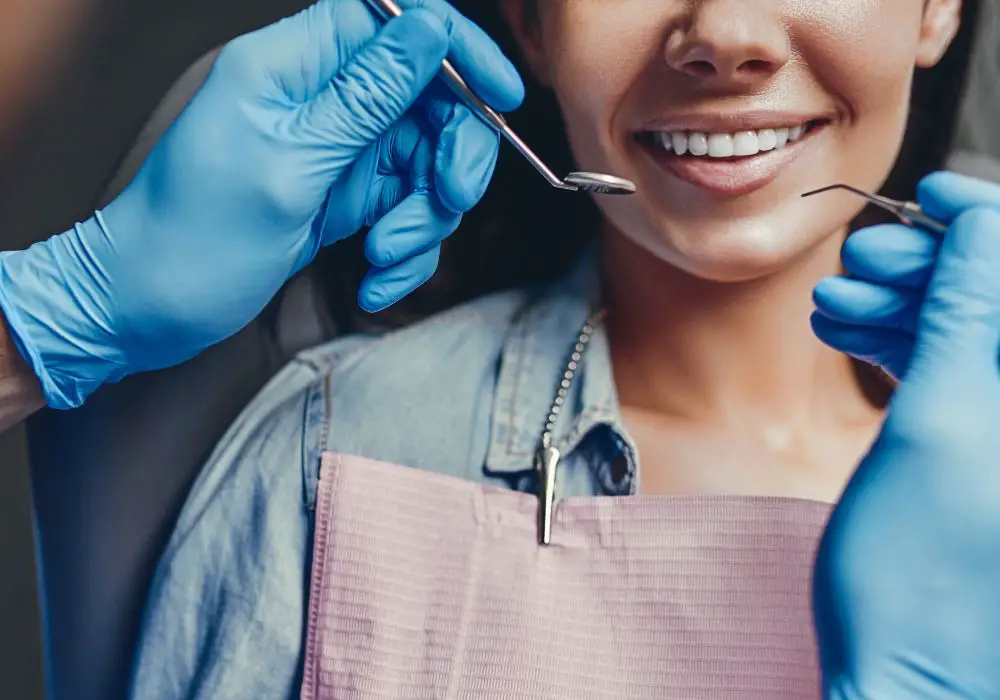
There are many benefits to having your teeth cleaned by your dentist. Apart from making your mouth feel fresher and your smile brighter, there are many benefits regarding your dental health.
It Boosts Oral Hygiene
While dental hygiene begins with a good teeth cleaning routine at home, having your teeth professionally cleaned is important if you want to maintain healthy teeth and gums. When your dentist cleans your teeth, they can remove any plaque and residue from places you might not be able to get to yourself.
It Helps to Detect Issues Early
As part of your dental cleaning process, your dentist will examine your teeth and gums and evaluate your oral health. During the examination, your dentist can detect any issues that could become a problem and suggest ways to treat them.
It Strengthens Your Teeth
After your dentist has cleaned your teeth, they will give your teeth a fluoride varnish. Fluoride helps you to maintain strong teeth. It adds a protective layer to the enamel on your teeth, which helps to resist cavities.
It Reduces the Risk of Oral Infections
The most common oral infections are dental cavities and gum diseases. You can get them when plaque builds up on your teeth. This happens slowly over time because you may not be able to remove all of it with flossing and brushing at home.
During the dental cleaning, your dentist will remove any buildup of plaque using special dental tools. This will significantly reduce your risk of getting dental infections that unattended plaque can cause.
Conclusion
Having your teeth cleaned regularly by a dentist or dental hygienist is a key part of your oral health routine. It is important to follow the instructions on when and what to eat after dental cleaning to ensure the best results.
When fluoride is used as part of the cleaning procedure, avoid eating anything for at least thirty minutes after the treatment has been finished. If fluoride was not used in the treatment, then you can usually eat straight away.
However, for at least six hours after the treatment, remember to stick to foods that are gentle on your teeth and gums. This avoids causing them stress and allows them time to heal properly.

